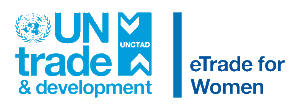
©Gina Motisi, 2019/CSHL
United Nations Headquarters, New York, United States of America
11 February 2025
[Video message]
Your Royal Highness, Princess Nisreen El-Hashemite,
Your excellencies,
Distinguished colleagues,
Dear friends,
Ten years ago, when the Royal Academy of Science International Trust helped establish the International Day of Women and Girls in Science, our challenges were urgent.
Now, they are even more so.
Today, we stand not only at the intersection of multiple transformations – digital, climate, the energy transition, AI – but also at an accelerated pace of change. And as I have said many times, not everything changes at the same time, so new tensions and asymmetries arise.
Each of these transformations brings both promise and peril.
The promise of unprecedented scientific breakthroughs, of solutions to our greatest challenges, of new pathways to prosperity.
But also the peril of leaving many countries and populations behind and the peril of leaving further behind billions of women who, for far too long, have already been left behind.
At UNCTAD, we see how scientific knowledge and technological innovation have become the primary engines of economic transformation. But we also see how these engines still need to open up the opportunities for all.
This is not just an issue of fairness but also an issue of necessity.
The challenges we face – from climate change to public health, from food security to digital divides – are too complex and too urgent to tackle with one hand tied behind our back.
This is why UNCTAD has placed women in science and technology as a priority in our work.
Through our Commission on Science and Technology for Development, we're building evidence, forging networks and helping countries create environments where women scientists can thrive.
The theme of this year’s assembly, “Charting progress to shape the future: The best is yet to come”, is a reminder that progress is not inevitable. It is the result of deliberate, collective effort.
From early-start programs in STEM education to the inclusion of women in science policy and diplomacy, we have seen how intentionality can transform systems.
But we must also ask, How do we ensure that the next decade is not just incremental but transformative?
The answer lies in partnership.
It lies in the voices of women scientists who are not just participants but architects of change.
And it lies in the courage of young girls who dare to dream of a world where their contributions are not the exception but the norm.
The best is indeed yet to come – not because we wish it, but because we will work for it, together.
Let us make the next decade one where the phrase "women in science" becomes beautifully redundant – because the presence of women in every scientific field, at every level, becomes so normal it needs no special mention.
Thank you for your visionary leadership, and I look forward to continuing our vital collaboration.




